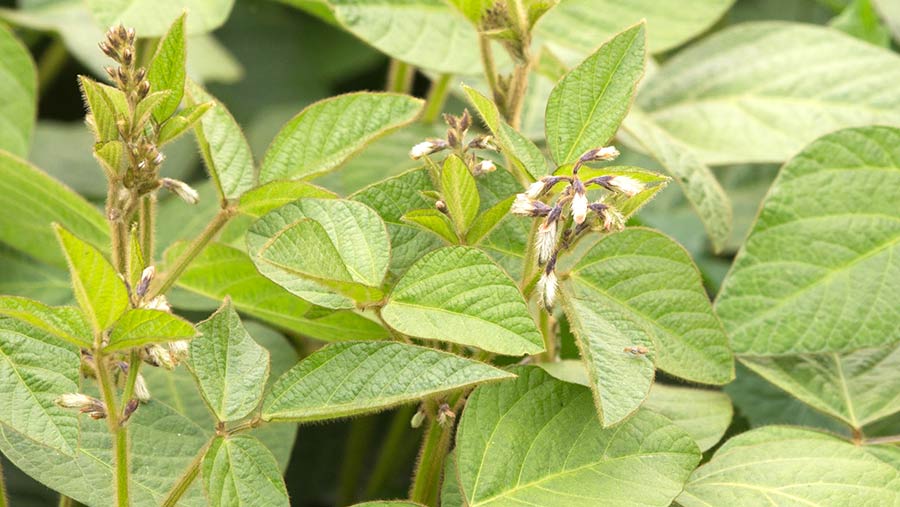GM soya captures more sunlight and lifts yields
 © Tim Scrivener
© Tim Scrivener A breakthrough trial of genetically modified soya has for the first time succeeded in improving photosynthesis – the process by which plants convert sunlight into energy.
Results from the study, which was headed by Dr Amanda De Souza at the University of Illinois, were published in Science journal, and found that soya bean yields were in some cases improved by up to 33%.
See also: Gene editing – the pros and cons for farming
Decades of research have gone into the study, which could apply to other plants and help alleviate food insecurity, as more than 840 million people worldwide are expected to be undernourished by 2030.
According to the study, soya bean was selected because “in terms of total global production, [it] is the fourth most important grain crop and the most important single source of vegetable protein”.
Editing process
To edit the complex process of photosynthesis and allow the plants to produce more energy and food, the scientists changed how the soya bean plants behaved as they moved in and out of the shade.
In full sunlight, plants use a protective measure to prevent leaves being damaged. This mechanism takes several minutes to deactivate when sunlight levels are low in the shade – costing time that could have been otherwise used for photosynthesis.
The scientists transplanted three genes into the soya bean from a plant called Arabidopsis thaliana, a member of the mustard family, with the addition of these genes speeding up the deactivation of the protective mechanism, allowing more time for the plants to photosynthesise.
The variety of soya bean used was also important. For the trial, scientists used one called Maverick, which according to the study published in Science, “is an elite soya bean genotype that is resistant to stress conditions and has been used as a proof of concept of different transgenes because of its amenability to genetic transformation”.
Average results from the study saw a yield increase of 24.5%, due to a higher number of seeds a plant. Crucially, seed protein and oil contents were not altered in the process, meaning there was no negative impact on quality.
This, the study found, “validates increasing photosynthetic efficiency as a much needed strategy toward sustainably increasing crop yield in support of future global food security”.
The study and trial were carried out as part of the Realising Increased Photosynthetic Efficiency (Ripe) initiative – an international project backed by the Bill and Melinda Gates Foundation, which has provided more than $70m in investment – along with the UK’s Department for International Development.

